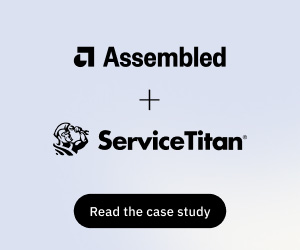From original blindfold games to Chinese whispers, our experts present an array of team building ideas that are perfect for customer service training, boosting morale on the call centre floor and creating staff rapport.
6 Expert Recommended Team-Building Games and Exercises
1. Could You Do Your Job Better Blindfolded?
It’s amazing what can be achieved by blindfolding a team and asking them to communicate what they can’t see.
To this end, a game we often use during our skills workshops for call centre teams is called ColourBlind.
It’s a very practical exercise, providing insight in to the barriers humans have when communicating without physically being able to see what is being described. Essentially, the exercise simulates what is happening on the telephone.
The objective of the game is for the group to establish the shape, colour and number of missing ColourBlind items. Group members are blindfolded and then issued with the ColourBlind items of which a number have been removed from the full set. Believe me, it’s more difficult that it sounds.
The exercise challenges individuals to concentrate, listen, understand and remember. It’s a great way of helping develop good verbal skills and telephone techniques.It is also ideal for team-building as it shows the importance of communicating so everyone can understand, and how individuals within a team could and should use a range of thinking and learning styles.
Contributed by: Nathan Sage, Partner and Retail and Financial Services Practice Leader at Blue Sky Performance Improvement Consultancy
2. Water, Water Everywhere
We have used agent participation and visualisation exercises to encourage team-building – and with great success.
It started because we wanted to show how people depend on one another in the work environment and need to pull together to provide good customer service.
The way we worked it was to select a group of 15 staff from a variety of roles in one of our call centres – all of whom provided customer services for a specific client. We got these 15 people to stand in a circle, each person holding a glass of water. The glasses of water, representing customer calls, were then passed around the group.
During this process, some participants were asked to withdraw from the circle and sit in the middle. But the 15 glasses still had to be passed around the remaining people forming the circle.
As more people were taken out of the circle, it became increasingly difficult to pass the 15 glasses without spilling the water. The people sitting in the middle meanwhile felt the impact of the circle reduction as the water splashed on to their heads.
Ultimately, this was a fun exercise, but it also practically illustrated how we are all reliant on each other to fulfil the team’s objectives of handling customer enquiries.
Following the exercise, all participants gave their feedback and discussed the impact. A report on the exercise was then provided for discussion at team meetings to demonstrate the need for teamwork.
Written by: Indranil Chakraborty, General Manager at the Belfast-based contact centre Firstsource
3. A New Take on a Playground Favourite
‘Physical Chinese Whispers’ is a great exercise that teaches you about the value of breaking complex information down in to memorable and easily actionable chunks.
Take the group and stand individuals together in pairs, back to back, so that each person is facing the next pair and the group forms a semi-circle.
Ask all participants to close their eyes. The trainer will then tap the first person in the line, ask them to open their eyes and mime an everyday activity or job (once only).
This could be anything from going to a launderette, to delivering milk, to instructing a keep fit class. The first person will then tap the next person in line, ask them to open their eyes, and repeat the mime.
The same thing will happen until the last person in the line is reached – at which point that person will give their interpretation of the mime to the entire group.
When the trainer then demonstrates the actual mime, the group can see the clear differences, generally causing huge amusement. The trainer will then show how participants could have acted the same mime better if they had broken the set of actions in to small and distinct steps.
For example, enter the launderette, load the laundry, put in the soap, sit down and read a paper as you watch the laundry spin, empty the machine, put the laundry in to the dryer and so on.
It’s a fun exercise with a serious edge. If you’re dealing with a complex issue, say a technical support issue, break the problem down in to distinct steps.
If you lead the customer through the problem resolution step-by-step, ensuring they know what is happening at all times, you are more likely to end up with a successful outcome.
Written by: David Mohan, Operational Trainer
4. The House That Jack Built
Let’s face it: unless we get a big win on the lottery this week, we have to work to pay our way. When you get right to it, most of us don’t want very much from an employer.
What we want to do is to feel like we belong, knowing that our presence contributes something worthwhile. We want to know that when we contribute, we are recognised for having done so. Most of us want to know that we can learn something new as we go.
If we can tick all these boxes, we are motivated, productive and engaged.
My hot tip for achieving the above is to create a horizontal management channel. All organisations manage vertically – and should continue to do so – via a classic management structure. This year, Merchants will introduce ‘team houses’.
This horizontal matrix will enable the cross-pollination of ideas, provide new avenues for innovation and encourage peer recognition. What’s more, it’s a great excuse to have some fun, creating competition between newly formed social groups. Hogwarts, eat your heart out!
Written by: Adrian Garton, HR Consultant at the outsourcer Merchants
5. The Escalation Workshop
Message Pad’s Call Escalation Workshops bring together groups of two to four operators with their team leaders to look at the transcripts from several genuine calls.
These are put together in a script format so that each participant can take on the role of either caller or operator and work through the call as it actually happened.
The essence of the workshop is to offer guidance and reassurance to operators for when they find themselves in a situation during a call that the account training could not anticipate. Or, indeed, for those odd occasions when they are faced with a particularly aggressive caller.
Rather than struggling on with a call, operators are encouraged to identify the point at which they should ‘escalate’ to their team leader to ensure that the call is concluded as successfully as possible and the team leader is made aware of a new area for training.
The workshop idea was devised by the operators themselves who, while knowing they had the support of their team leaders, felt that there’s nothing like real-life experience to help colleagues who might face similar challenging calls and to reassure new team members that help is always there for them.
The workshops have succeeded in adding a new dimension to team building; they never fail to raise a belly laugh and have created an informal forum for discussing past experiences where everyone is at ease to recall their best, and worst, call experiences.
There’s no time limit on the workshop, and no tests; it’s a just a very useful tool that has evolved to become a key part of ongoing training and development.
Agents tell us that they have fun participating and leave the sessions with a bit more knowledge, understanding and experience to help them become a top class, customer-focused operator.
Written by: Rachel Marsh, Global Training Manager at Message Pad
6. Get Your Staff Involved in Fundraising
We actively encourage staff to become involved with charity and fundraising initiatives. We find these activities excellent team-building exercises as they inspire and motivate employees to work collectively to organise tasks and achieve predetermined targets.
We also find that they provide a stimulus for creativity as employees are responsible for working together to generate fundraising ideas.
In November and December of last year, staff at our Edmiston House site raised over 4,000 for The Davie Cooper Centre in Clydebank. Inspired by an employee who has a terminally ill granddaughter with special needs, staff organised a series of fun days.
Activities ranged from Tarot Card readings to getting even with team leaders by soaking them in water. RESPONSE supplemented employee efforts by pledging an additional 600 to the amount raised.
Staff displayed an unprecedented enthusiasm for the activities and the amount raised was testimony to the team effort.
Written by: Ann Marie Clark, Senior Account Manager for Sky Customer Services at RESPONSE
For more ideas on making working in a contact centre fun, read these articles next:
- 4 Team-Building Games for the Contact Centre
- Seven Simple Ideas to Bring Some Fun to Your Workplace
- 10 Examples of Customer Service Activities
Author: Jonty Pearce
Reviewed by: Robyn Coppell
Published On: 23rd Feb 2007 - Last modified: 3rd Sep 2025
Read more about - Call Centre Management, Fun and Games, Management Strategies, Motivation, Rapport, Team Building, Team Management, Training and Coaching





































